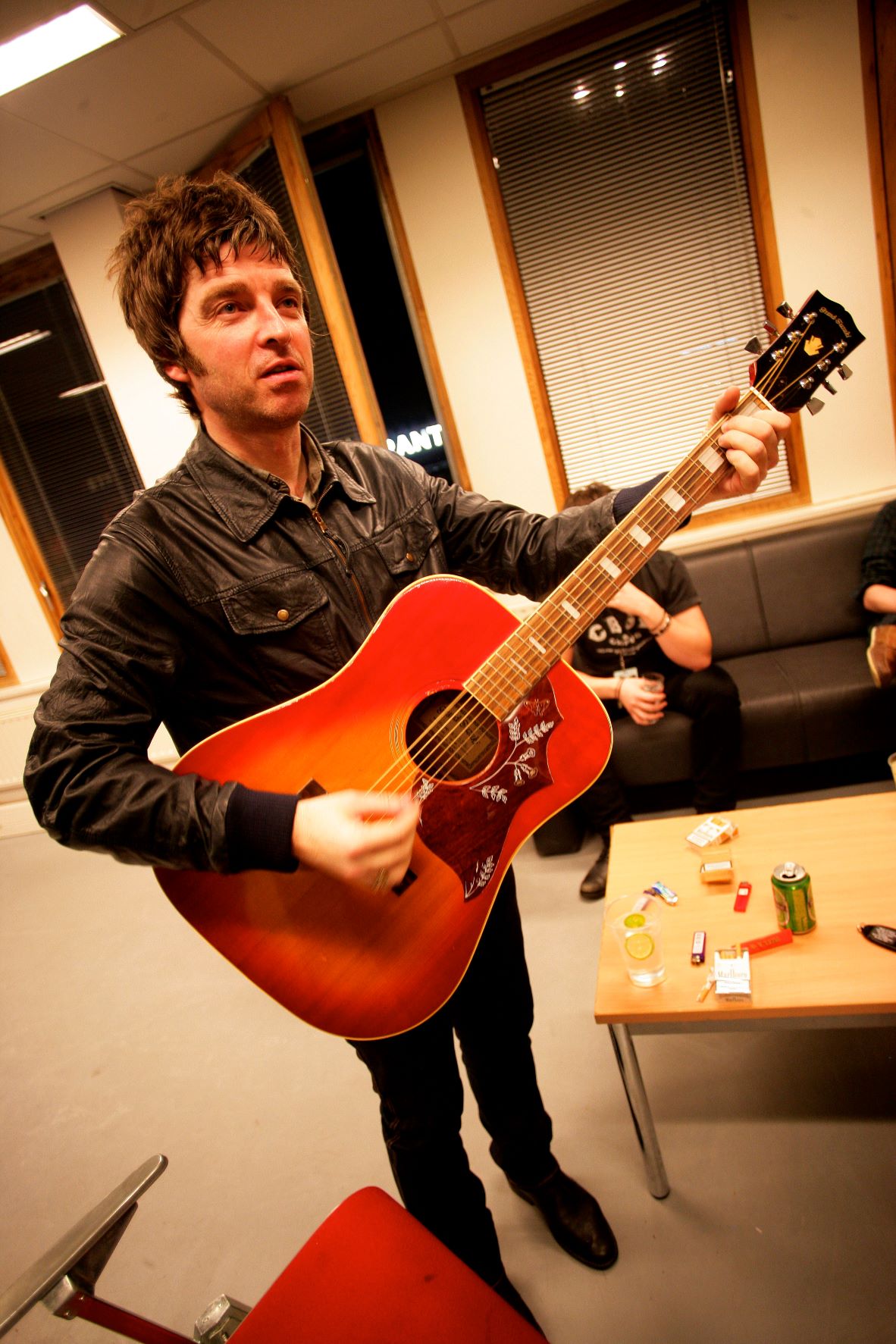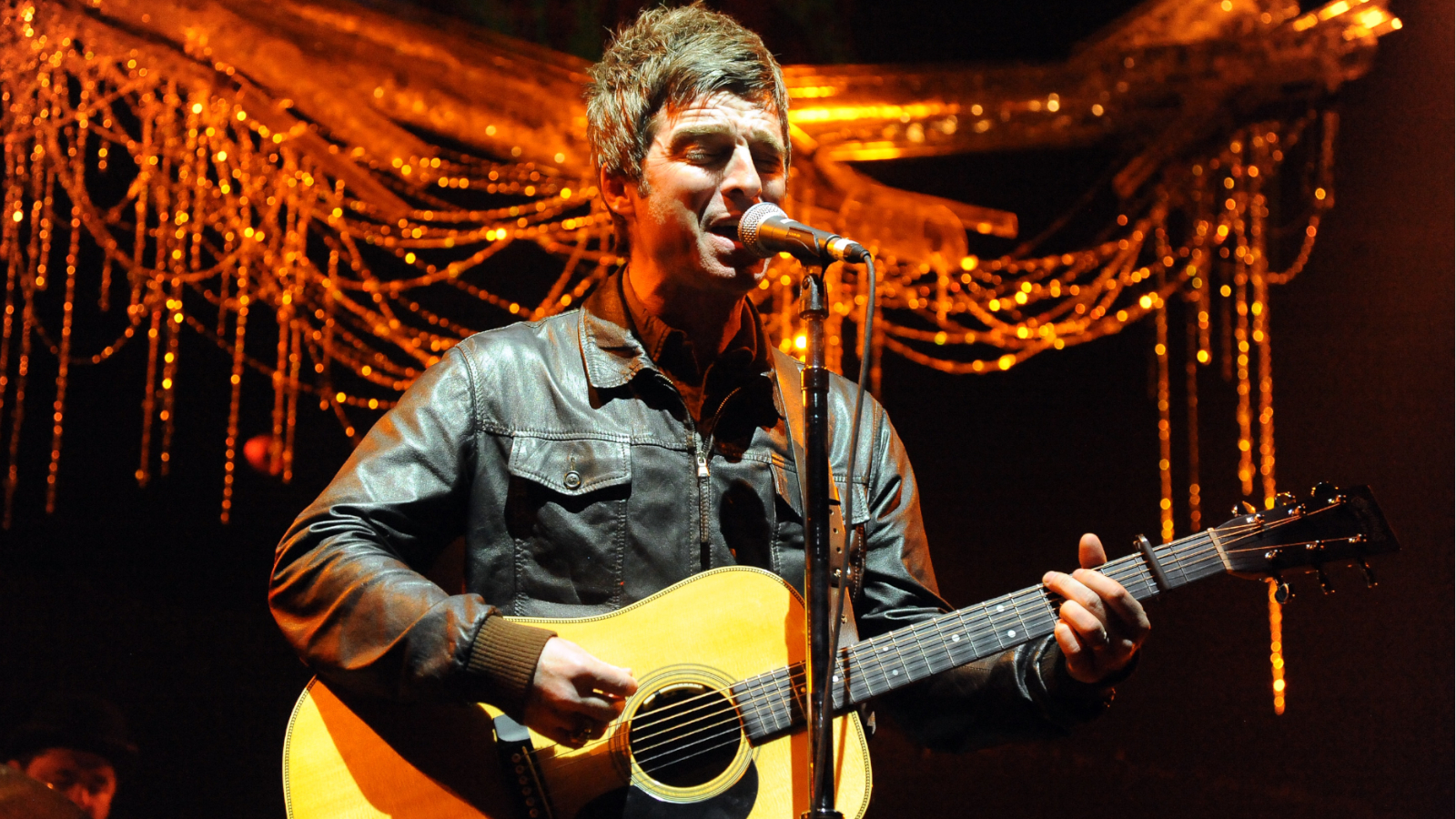“I Sit Down With an Acoustic Guitar”: Noel Gallagher Explains How Hit Records Are Made
The Oasis singer-songwriter and guitarist reveals his tricks of the trade in this classic interview from the GP archive.

To anyone who cared enough to look past the tabloid headlines, it was clear that Oasis' stature as perhaps the greatest British guitar band of the '90s was hardly due to hooligan luck.
Through all the drugs, brawls, and hysteria, Noel Gallagher worked extremely hard to ensure his band delivered good songs, catchy riffs, and soaring melodies.
Following the release of Oasis’ fourth studio album, 2000’s Standing on the Shoulder of Giants, the songsmith spoke with GP about the creative process behind his era-defining hit records…
How do you typically start arranging your songs?
Unless it's a really fast sort of punk number, every song starts with an acoustic guitar because that's how I write.
In the studio, I sit down with an acoustic guitar and play the whole song to a click track
Noel Gallagher
In the studio, I sit down with an acoustic guitar and play the whole song to a click track.
Then Alan [White] will put his drums on top of that, and he'll usually add some accents or change the beat, so we'll go back and redo the acoustic guitar to match the drums.
Then we'll build the track from there.
Do you have arrangement ideas in your head when you're writing the songs, or do you wait until you start fleshing out the tracks in the studio?
The thing about Standing on the Shoulder of Giants is that I had a full year to sit in my 16-track bedroom studio with an engineer friend and make demos, whereas the demo sessions for Be Here Now were finished in two weeks – and they were really rough.
We didn't bother about what sounds we were going to use, or the arrangements, or anything. I thought, ‘We'll work all that out when we get to the studio.’
We ended up using a lot of stuff from the demos on the actual record
Noel Gallagher
This time, however, I had basically done the album twice before it even got to the band.
I had written and recorded the songs on a little Walkman, and then I demoed the tracks on ADATs in my bedroom.
And we ended up using a lot of stuff from the demos on the actual record because the demos were that good.

When you work out your guitar parts, do you consider your brother's voice, or do you layer parts and leave it to him to find his place in the mix?
His voice was already recorded – I always go on last.
We'll get every single thing that's going on the record, and then I'll work out my parts while we mix.
That's brilliant.
I'll work out my parts while we mix
Noel Gallagher
Well, if I didn't have a definite idea of what I wanted to do, I couldn't see just playing something for the sake of it.
I mean, once you stick something in there and mix it, you can't ever get rid of it – it's part of the song forever.
For example, most of the guitars on Be Here Now were done on the spot, and after I had played the songs for six months on the road, I found that I liked what I was doing then better than the stuff I had recorded.
I certainly didn't want that to happen again, so when we started recording the new album, I said, "Well, I'll play each song and wait until something comes along. And if something doesn't come along, we just won't record any guitars."
So I set up a small guitar amp in the back room, and I'd listen to the tracks and mess about until I played something that sounded cool.
I'd keep playing that bit for maybe a week – throwing different variations around – until I'd go, "Right, let's do it!"
Subconsciously, you're working parts out in your head
Noel Gallagher
Then I'd pretty much get the part down in one take.
Of course, by then you're completely immersed in not only the sonic environment you're trying to fill, but also the emotional element.
Yeah – because you can listen to the song as it's being built up from nothing.
Subconsciously, you're working parts out in your head instead of somebody pressing record and expecting you to pull it out of a hat.
And, of course, I'd been listening to the songs for about a year before I recorded my parts, because I'd taken that much time to write and demo everything.

When I actually recorded my parts, I had a better understanding of what the song was about, the feel of it all, and how the things I was doing would sound in the final mix.
That was really important – having the mix up so I could hear what the finished product was going to sound like.
Usually, when you do stuff in the studio, you're not quite sure how the song is going to sound.
Usually, when you do stuff in the studio, you're not quite sure how the song is going to sound
Noel Gallagher
Is it going to be rocking and loud, or will it be a quiet mix? Is it going to be acoustic, psychedelic, or what?
Also, instead of having recorded something with Marshall stacks, and then six months later getting to the mix and going, "We should've used something else there," I had the luxury of being able to hear exactly what would work with the mix.
Then I could plug my guitar into a little amp, stick a mic in there, and just get it done.
Browse the Oasis catalog here.
Get The Pick Newsletter
All the latest guitar news, interviews, lessons, reviews, deals and more, direct to your inbox!
“We’re Liverpool boys, and they say Liverpool is the capital of Ireland.” Paul McCartney explains how the Beatles introduced harmonized guitar leads to rock and roll with one remarkable song
"When they left town, I went to the airport and got to meet Ritchie, and he thanked me for covering for him." Christopher Cross recalls filling in for a sick Ritchie Blackmore on Deep Purple's first-ever show in the U.S.









